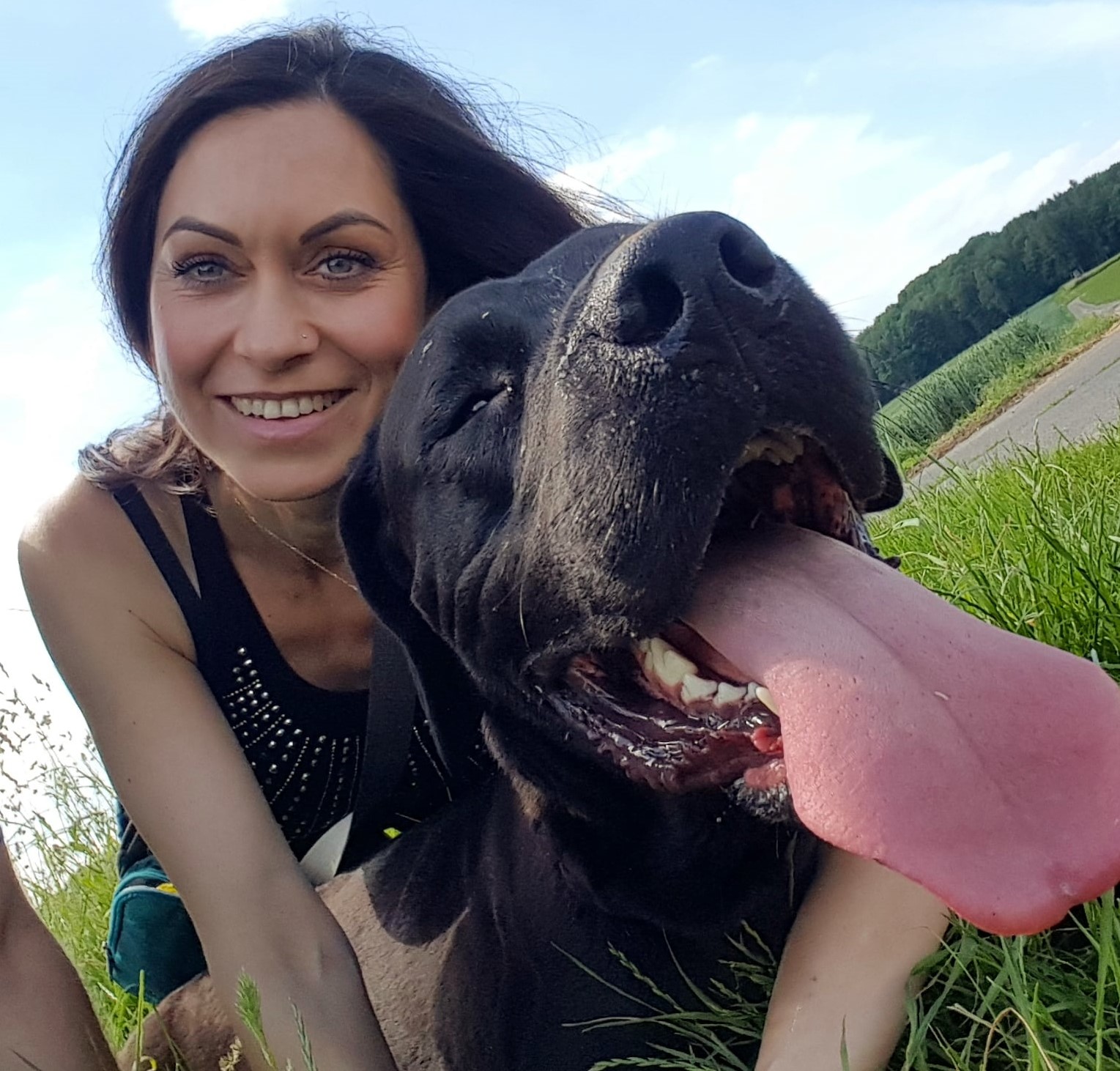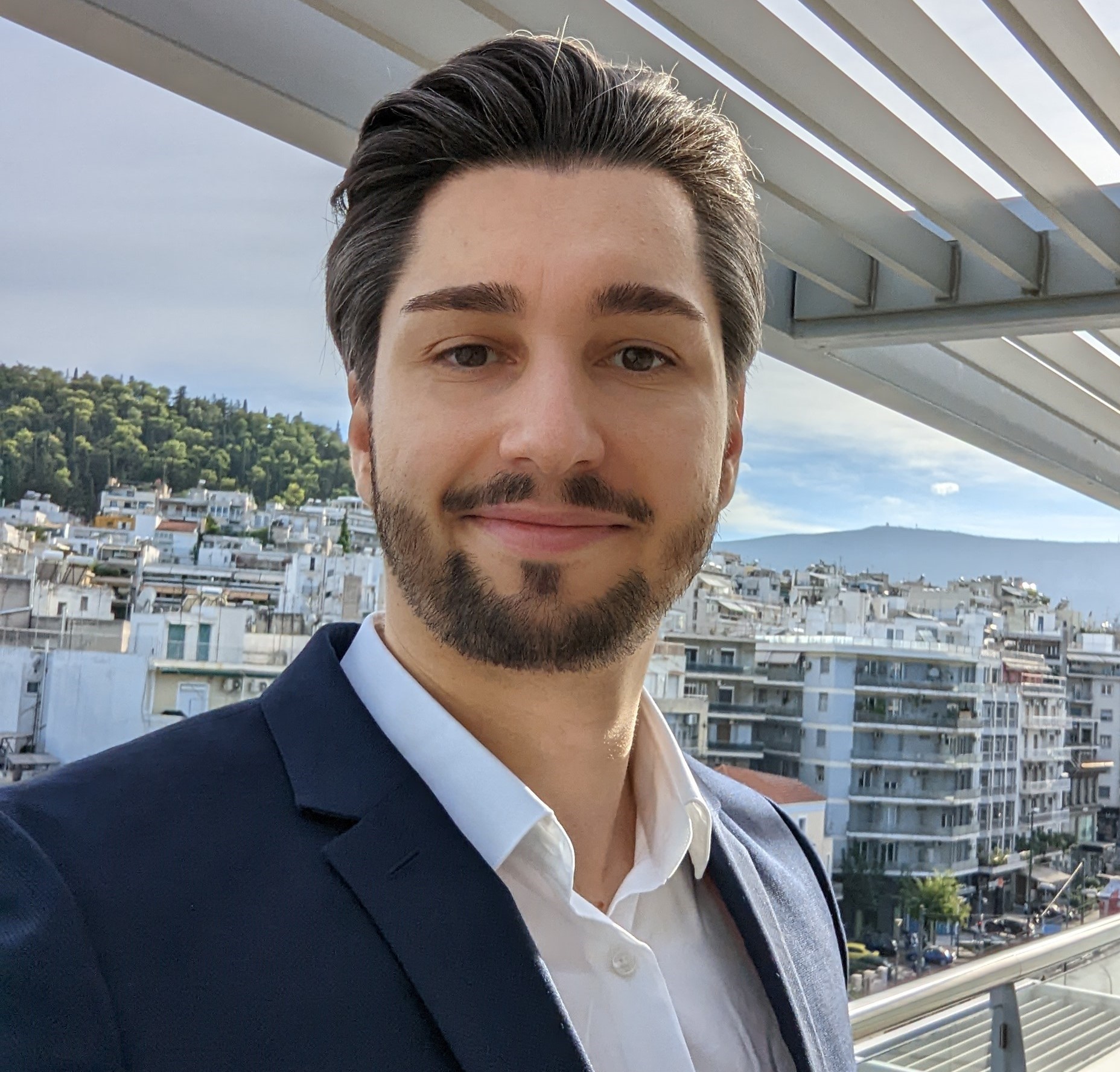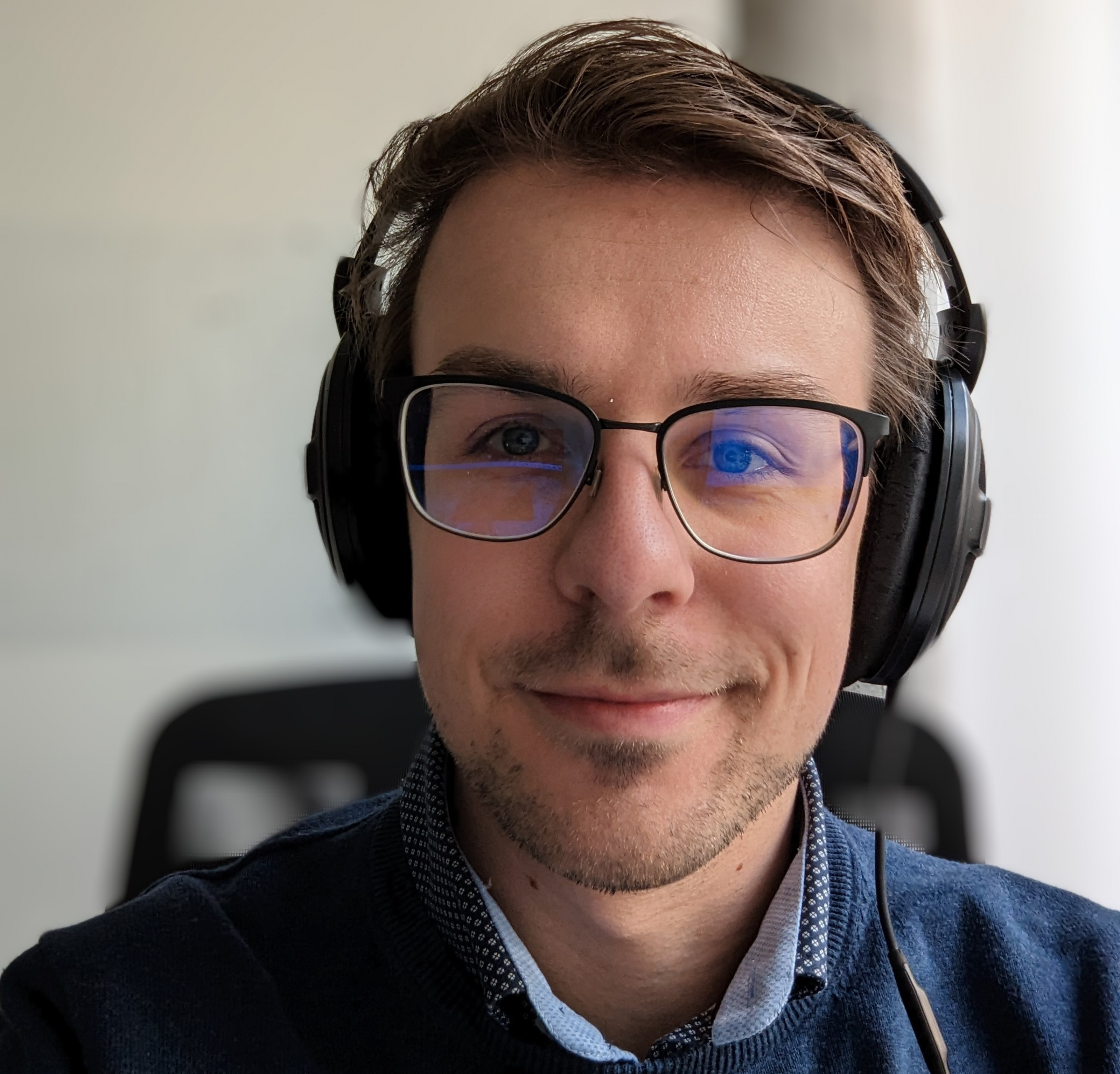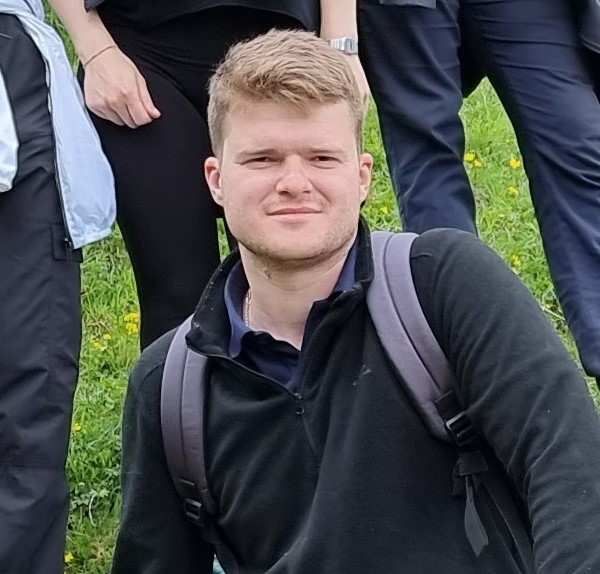
Our visit to the life farm Tierlieben
On our way to Kleinwalsertal, we were able to make a detour to life farm Tierlieben, which Gitta and Rainer run together with helpers. Our foster animals Molly and Ori also live here. Some of our first-class employees who were there kindly agreed to answer a few questions about the visit. We hope that the texts and pictures will give you a good overview of our trip, the life farm and the philosophy behind it.
1. Before your visit, did you know that life farms existed?
Adela: Yepp.
Gunter: No, I didn’t.
Jonas: No, I have never heard of life forms before our visit.
Serhii: Farming for me has always existed as something distant but simultaneously close. In my childhood years, my grandparents instilled within me an affection for nature and the land. A tradition of my summer vacations involved joining my grandparents at their countryside (“dacha”) where together we sowed a diverse array of plants. Potatoes, cucumbers, tomatoes, peppers, etc.
While my grandfather imparted lessons on how to tend to the land and maintain our modest tractor, my grandmother guided me in the art of plant cultivation. Amidst these experiences, there was an indescribable delight in inhaling the aroma of freshly plowed earth and witnessing the steady maturation of our plants – each one a green offspring of our labor.
2. If yes: Have you ever been to a life farm before?
Adela: I have already had the opportunity to visit different farms.
Gunter: see above
Jonas: see above
Serhii: While I may not be intimately acquainted with the intricacies of real farming life, my perception of farmers has always been that of robust and unassuming individuals, who rise and fall sleep together with the sun. Each day, even on weekends, seems to be a ceaseless journey laden with responsibilities and physically taxing endeavors: tending to livestock with a parental devotion, tilling the earth and nurturing crops, maintaining the homestead and tools – all of this transpiring alongside the backdrop of familial worries and the upbringing of children.
My recent journey, however, left me impressed. Witnessing Gitta and Rainer I was struck by the strength concealed within their unpretentious bodies, embodying the essence of resilience and simplicity.
3. What was the process like during this visit?
Adela: There was a guided tour of the farm where we could visit and stroke the pigs, chickens, goats and the many other animals, while Gitta told us all sorts of informative, funny and sad stories. In the meantime, Rainer had prepared vegan spaghetti bolognese and salad and everyone ate to their heart’s content. Afterwards, we visited the flock of sheep in a paddock a short distance from the farm. They always offer walks with the sheep, which everyone enjoys. Anyway, the only way I can explain it is that the sheep were very insistent on accompanying us on the way back. They escaped and we couldn’t stop them 😊
Gunter: We were greeted warmly by the two main volunteers of the life farm. We were given a great tour of the facility on site. We were given a detailed introduction to the concept, the life farm and the animals that are allowed to live on site. The tour was coupled with a home-cooked vegan lunch.
Jonas: I am not sure what you mean with process. Our visit was very calming and relaxing, although I had to participate in a meeting, and they hear the chicken around me while I talk 😅.
Serhii: Upon my initial encounter with the farm, I braced myself for a terrain caked in mud, the pungent aroma of manure, and an unending symphony of bovine chatter – all within the weary, sleep-deprived people. To my astonishment, however, reality diverged from my expectations. Instead, I stepped into a courtyard that seems to have grown up from the earth itself. What was before me was a harmonious fusion of human and natural elements: contented and joyful individuals, old but yet sturdy structures, and beautiful animals within spacious and meticulously maintained enclosures.
4. Did you get information you didn’t know before?
Adela: As I had been there once before, I already knew most of the things. What was really new to me was that Gitta and Rainer can apply for funding if they can present an educational concept.
Gunter: I wasn’t aware of what a life farm was at the time, so the concept was new to me. I also realized how difficult it is to finance the farm, the animals and the employees.
Jonas: Definitely. First of all, I was unfamiliar with the whole concept. To be more specific, the information about the pigs and cows were mostly new to me.
Serhii: A truly remarkable was the discovery of sheep’s tails – long and fluffy, the kind that could even evoke envy cats! And their wool, even more fluffy than my wildest imaginings. These captivating creatures managed to win my affection, particularly the petite sheep that had grown up among dogs, displaying a sincere belief in her role as a loyal companion.
Equally intriguing was the moment we observed the local hens. The unexpected revelation that these hens only lay eggs, not every day, and not even every week, left me astonished. In that instance, a mental image of supermarket shelves, where I routinely purchase groceries, came to mind. Subsequently, the farm owner unveiled a sobering truth about the grim reality of the food industry…
Just as with the cut tails of the sheep, a harsh reality exists for the chickens, as well as countless other creatures. They undergo a process of “editing” that involves mutilation, the severing of body parts, and enduring unnatural conditions – all in the pursuit of maximizing the extraction of “resources” from their bodies. This newfound awareness transformed my perspective, reshaping my outlook on animal-derived products, which initially appeared as gifts bestowed by nature without cost.
5. Which information has remained in your memory?
Adela: The funding! Yes, they exist, but the bureaucracy makes it very difficult for people like Gitta and Rainer. They have to write and apply for a new application with a new concept every year. I mean, on the one hand you have animals that have been exploited up to now and that you have saved from the slaughterhouse. All you want now is to give them a dignified life. On the other hand, you have children who you want to show that Anton or Mokka or Fraya are personalities with preferences, strengths and weaknesses. They are friends, not food or leather shoes. You want to show these children that a balanced, healthy, purely plant-based diet is possible and can taste extremely delicious. WTF! The faces of the children and the animals may change, but the concept remains the same… I think it’s a shame that such heartfelt projects are made unnecessarily difficult.
Gunter: That they do get a lot of requests to take in animals.
Jonas: That the cows adopt other animals as their children (I hope I do not remember the fact wrong).
Serhii: see 4.
6. Is there an animal that has stayed in your memory for a long time? Or several?
Adela: The trio Molly, Mathilda and Fridolin. Until then, I didn’t know that calves can also be adopted by other cows (just as Mathilda was adopted by Molly). It was just lovely to watch the three of them in their intimacy.
Gunter: Anton the pig, who unfortunately didn’t become our partner animal animal (but may yet become one 😃)
Jonas: 100% the dog Ori. I would have taken the dog with me , if there would have been an opportunity. 😄
Serhii: Fondly in my heart is the memory of that small sheep, nurtured alongside canine companions on the farm. It was a delight observing a creature so endearing, embodying the endearing antics of a dog while exuding a gentle charm that beckons to be caressed.
7. You were able to meet Molly and Ori – CyberShield’s two foster animals – in person. How was that for you?
Adela: Wonderful! See above. I also had the opportunity to see a photo of Ori as he looked before he arrived at Tierlieben. He was closer to death than to life. And now look at this gorgeous dog, who has his own loving and stubborn head, dragging Prashant behind him because he wants to go to his sheep friend. 😉
Gunter: Of course it was nice to meet Molly and Ori, but for me it was just as great to get to know every other animal and to see how much effort is put into the great living conditions of the animals.
Jonas: As in the previous question, it was awesome. Both were very sweet to us and showed a lot of trust to us strangers/visitors.
Serhii: Ori, a constant resident of the farm, was the clear favorite for me during the past voting. In person, he exceeded even the captivating allure of his photograph. This adorable canine possesses an insatiable appetite for affection, willingly exposing his belly for continuous petting. Yet, his respect for personal space is a testament to his impeccable manners, as he patiently awaits the opportune moment to captivate you.
Surprisingly, Ori is quite a renegade shepherd. I recall a time when we visited the pasture to meet with a flock of sheep. Unexpectedly, they opted to embark on a return journey with us, hastening through an open passage and vanishing into the distance. Amidst this mayhem, what was Ori’s role, you may wonder? Astonishingly, he played the part of a nonchalant traitor, as if nothing out of the ordinary was unfolding. Engrossed in his own canine affairs, he leisurely explored bushes and trees, completely unfazed by the escape.
8. Gitta and Rainer live their dream of a better world on “Lebenshof Tierlieben”. They underline this with their educational concept, which they offer to (mainly young) people. What do you think about it?
Adela: It’s not about Gitta or Ori or me. It’s about our relationship with each other. It’s about the society we want to live in. And in the meantime, it’s also about our planet, because we’ve gone a bit too far with factory farming (and the rats’ tails that the whole thing drags behind it, such as deforested rainforests or degenerated soils or polluted water, etc.)… :-o
In order to save our planet, we must live with compassion for all fellow creatures, regardless of whether they are of a different gender, a different skin color or belong to a different species. It’s as simple as it is ingenious!
Gunter: I think it’s great that young people can see here what good animal husbandry can look like. At the same time, it can also show that animal husbandry is only part of the problem, e.g. the chickens that continue to lay too many eggs, the pigs that are bred to be too fat and the sheep that continue to produce a lot of wool.
Jonas: Although I am not sure if I have grasped their concept entirely, I find this very promising compared to alternatives: I believe that with concepts like this (young) children learn to have compassion towards animals in a way, which is almost not possible inside (big) cities.
Serhii: The concept conceived by Gitta and Rainer is uncomplicated, yet astonishingly effective. The beauty lies in its simplicity – the idea that anyone can casually drop by and instantly feel not just welcomed in words, but also embraced by genuine gestures. This resonated evoking memories of my own cherished summer sojourns spent alongside my grandparents. They grant you with the moments when you are truly ensconced in the rhythm of farm life, where every nook held a world of discovery.
Gitta and Rainer, in essence, grant a priceless pass to a life unencumbered by the bustling city. They provide an invitation to embrace existence in its unfiltered form. Their generosity and vision serve as a guidance, illuminating a path that leads to an authentic connection with the world around us. I gratitude them, and I fervently wish for the unwavering determination and resilience to continue forging ahead on this remarkable journey they have embarked upon.
9. Can you imagine visiting another life farm?
Adela: Sure! When we travel and time permits, we always check to see if there is a life farm nearby that we can visit. Here are a few examples: http://initiative-lebenstiere.de/Start/ , https://www.hof-narr.ch/ , https://www.wohlfuehlhof-zeh.de/
Gunter: Yes, I definitely can. My family was thrilled when I told them about it and we will definitely look into visiting a life farm together in the near future.
Jonas: Yes, definetly.
Serhii: The notion didn’t initially cross my mind until your inquiry prompted me to reflect. Now, upon contemplation, I find myself enthusiastically embracing the idea. The experience embodies a vast expanse of delightful emotions and cherished memories, encapsulating meaningful interactions with individuals whose perspectives diverge from my own. These visits promise a wealth of fresh insights into both the natural world and the integral facets of our own existence.
Such encounters serve as a reminder, awakening an awareness of the delicate intricacies that compose our planet and the rich nature adorning its surface. By partaking in these experiences, we’re gifted with a renewed appreciation for the intricate fragility and profound complexity inherent in both our world and the life that thrives upon it.
10. Do you have a concluding sentence or message for the readers?
Adela: I have great respect for Gitta and Rainer, who have completely dedicated their lives to “loving animals”. But it would be best if there didn’t have to be any farms at all, because farm animals and pets would no longer be bred and exploited by humans.
A living farm should not be confused with a farm where the animals are well cared for. The philosophy of life farms is actively directed against speciesism. This means that it is ethically wrong to exploit or kill living beings just because they are different or because we can.
Gunter: The life farm is a great example of how well animals can do. However, I am convinced that the topic of sustainability and animal husbandry should be dealt with in advance in order to provide a constructive learning opportunity (especially for young pupils).
Jonas: Our visit to the life farm “Tierlieben” left an impression on me. I felt the trust of the animals towards the visitors, which lets me believe that Gitta and Rainer are great people and care deeply about the animals. I can only encourage the reader to experience a Lebenshof, too!
Serhii: In the midst of our busy city lives, we often forget that our planet is actually quite small and delicate. The cute animals around us depend on us a lot but at the same time without them, there would be no us. It is a crucial reminder that we are all in this together as one family, and we need to take care of each other and our world.
Many thanks to Gunter, Jonas, Serhii and Adela for answering the questions!






